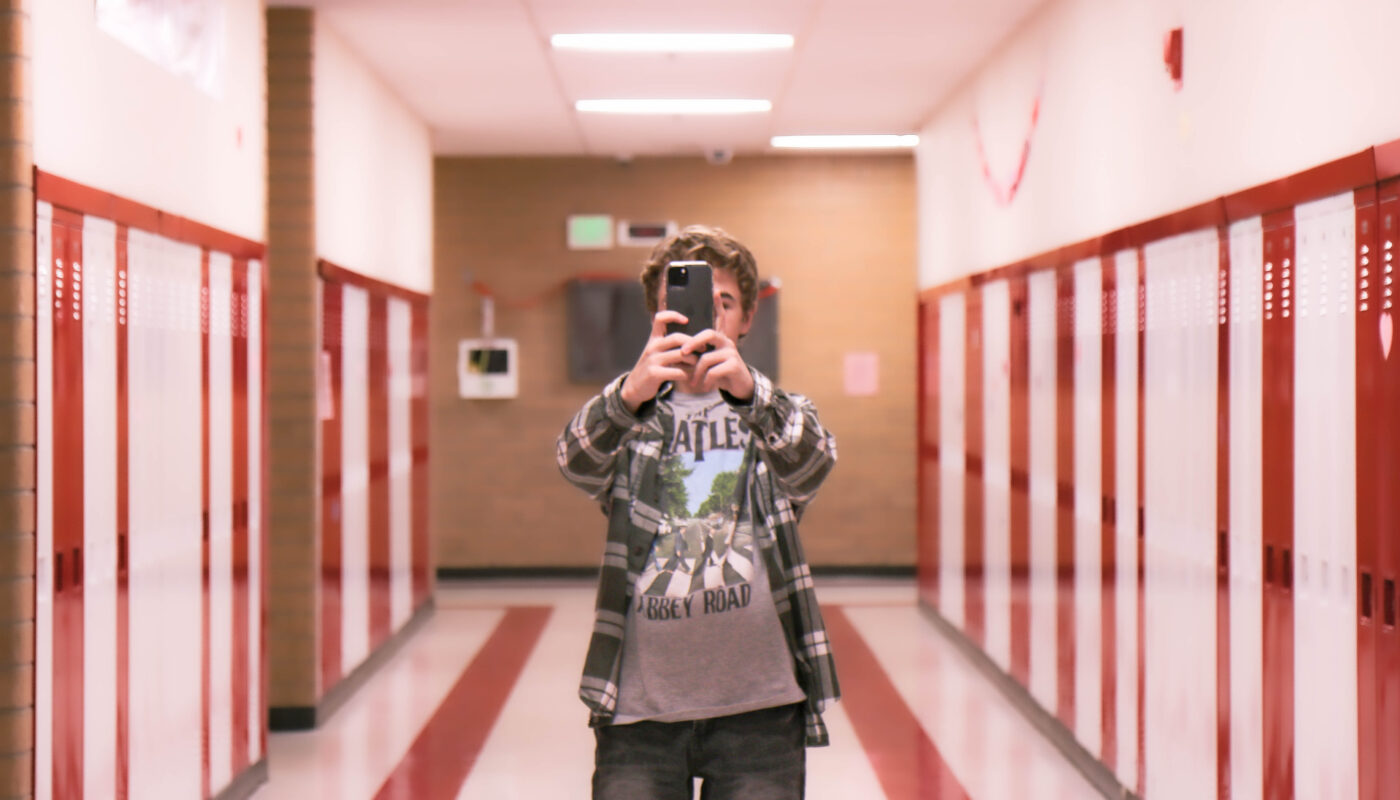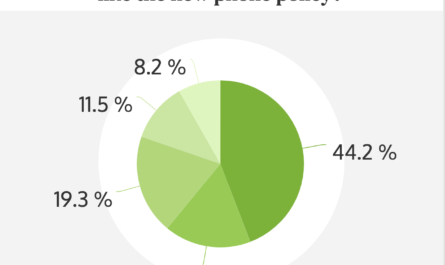In recent years teens are more commonly seen with a phone in hand, oblivious to the world around them. Utah state
officials decided to take the initiative and present a solution to help support a break from cell phones.
On Jan. 4 Governor Spencer Cox sent a letter to school and parent leaders in Utah’s school districts proposing that cell phone usage be banned during school. Officials have conducted nationwide research to show the
effects cell phones and social media are having on youth.
“Through that research and new research studies coming out,” Cox said, “it became clear, there was a consensus that cell phones in classrooms are having not just an impact on mental health for young people but a significant impact on their studies, on their ability to perform at a high cognitive level.”
In Governor Cox’s letter, he mentions different types of bans including classroom restrictions and completely banning
phones from school hours, but ultimately leaves the decision up to the school and districts.
NS will be implementing a new cell phone policy by the beginning of the 2024-25 school year. The extent of the phone ban will be discussed and decided in time.
“If we’re coming at it from the right angle, this has nothing to do with control, it has nothing to do with classroom management,” NS teacher Sterling Whipple said. “It has everything to do with trying to help kids develop in a healthier way so that they can become more successful.”
The NS phone policy states that cell phones may be used in between classes and during lunch but must be turned off during assemblies and class time. During class, students can use their phones for educational purposes with permission
from the teacher.
Though there are a series of offenses that students can be faced with by violating these guidelines, the phone policy is not always strictly enforced.
“Just based on walking around the classrooms I would say that probably less than two out of ten teachers enforce the policy,” teacher Greg Dettinger said.
Some students have found that classes where they put phones away become more beneficial and impactful.
“I had a few classes last semester that were phone-in-the-pouch, and as annoying as that was, I got assignments done on
time, full points,” senior Brooklyn Copple said. “I felt like I understood the material, I did better on the tests, I just felt more motivated to actually learn what I was learning.”
Although some teens experience benefits, a recent NS Times survey shows that 87 percent of students believe NS should
not ban cell phones during class time. Students expressed the usefulness of phones when doing schoolwork, communicating with friends and having phones available for emergencies among other things.
“I feel like as long as it’s not…when the teacher’s teaching you, you shouldn’t have your phone out, obviously,” senior Dakota Brinkerhoff said, “but any other time if you’re working on an assignment and they say you can use your phone for music or help on your assignment, I feel like that’s a better decision than a full ban.”
Cell phones can be a great asset to students, but they can also be a distraction. With a new phone policy, working time in classes can become more productive as teachers and students make better use of their time.
“Every class at some point gives you some downtime to do projects or homework assignments,” Copple said. “I feel like in classes where my phone has been put away we actually worked on stuff , but when it wasn’t a lot of people were
on TikTok or Instagramming their boyfriend.”
Cox believes students at NS can become more accountable as they experience phone restrictions and learn to make
better habits.
“I hope what will happen is that they’ll recognize how much better it is when [phones] are away so that when they do go home or they’re with friends or family or on vacation they’ll understand the value of putting the phone away,” Cox said. “Doing that more often, that behavior change will help break the addiction and help them make those better decisions when they’re not at school.”




